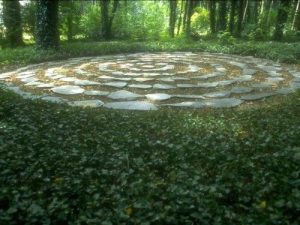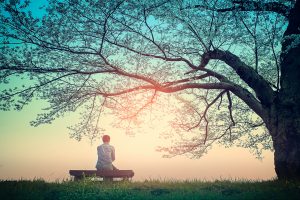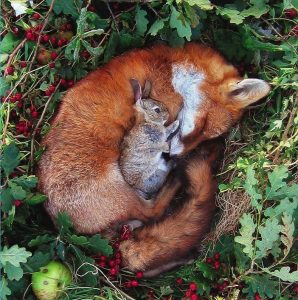 The Columbia City Yoga on-line Moving into Meditation class tried to meet this morning. Unfortunately my internet connectivity failed. Ironically, today’s class focused on ways our mindfulness practice can help us to live with uncertainty. I am finding this more and more important as a number of my friends and family members are experiencing health challenges. I’ve been struggling with the impulse to control situations. I want to do something to fix that which is a difficult and natural part of life. Trusting my own loving awareness helps me to accept what I can’t control. Practicing loving kindness – to include myself as well as others – helps me to find inner peace and rest.
The Columbia City Yoga on-line Moving into Meditation class tried to meet this morning. Unfortunately my internet connectivity failed. Ironically, today’s class focused on ways our mindfulness practice can help us to live with uncertainty. I am finding this more and more important as a number of my friends and family members are experiencing health challenges. I’ve been struggling with the impulse to control situations. I want to do something to fix that which is a difficult and natural part of life. Trusting my own loving awareness helps me to accept what I can’t control. Practicing loving kindness – to include myself as well as others – helps me to find inner peace and rest.
We drew guidance from Kristi Nelson’s Grateful Living essay, Deepening Our Comfort with Uncertainty. Kristi suggests trusting life can help us to find a wider perspective in our relationship to the unknown. She shares a lovely “self-care” practice she uses to ease into the solace of sleep. What a beautiful way to transform a tormenting mind into an ally in well-being. Kristi Is author of Wake Up Grateful. She was Ambassador for Grateful Living and Executive Director from 2014 – 2022. You can find many of her essays and talks at her Grateful Living page.
 We were inspired by poet philosopher John O’Donohue’s words about our wholeness. He made his observations in the Inner Landscape of Beauty, a conversation with Krista Tippett. It was one of the last interviews he gave before his unexpected death in 2008. He suggests that we all have a place inside that has not been wounded. After sitting with this idea for a while it began to make sense. John counsels that we rest in the inner sanctuary of our wholeness. I think he may have been referring to the soul. For me, this dimension of being is loving awareness.
We were inspired by poet philosopher John O’Donohue’s words about our wholeness. He made his observations in the Inner Landscape of Beauty, a conversation with Krista Tippett. It was one of the last interviews he gave before his unexpected death in 2008. He suggests that we all have a place inside that has not been wounded. After sitting with this idea for a while it began to make sense. John counsels that we rest in the inner sanctuary of our wholeness. I think he may have been referring to the soul. For me, this dimension of being is loving awareness.
Guided Reflection
 Last week we imagined living our lives as a sacred pilgrimage. We considered our inner compass: how we might navigate the rest of our days with intention, letting go of what we no longer need and letting in the guidance and resources we will need to make the journey. Many shared experiences of living with uncertainty. I think we are navigating the land of many “unknowns,” unknowns that can only unfold with time. Living with events beyond our control – especially as they involve our beloveds – reveals our vulnerability. So often we are vulnerable because we love so deeply.
Last week we imagined living our lives as a sacred pilgrimage. We considered our inner compass: how we might navigate the rest of our days with intention, letting go of what we no longer need and letting in the guidance and resources we will need to make the journey. Many shared experiences of living with uncertainty. I think we are navigating the land of many “unknowns,” unknowns that can only unfold with time. Living with events beyond our control – especially as they involve our beloveds – reveals our vulnerability. So often we are vulnerable because we love so deeply.
In her essay, Deepening Our Comfort with Uncertainty, Kristi Nelson writes
For everyone alive now, and for everyone who has ever lived, we are united in the fact that life invites us to show up again and again into mystery. There are no guarantees — only exquisite unknowns. We do not know exactly how or when we will die, and there is no single formula for how best to live. We do not know how life is going to unfold — in the grand scheme and also in its minutiae — and we cannot be in charge of most all of it. This freedom from control can either shrink our perspective to the size of a clinging fist or deliver us readily into the gaze of the cosmos, depending on how we approach life in the moment. Much of our freedom depends on cultivating greater perspective about being with uncertainty, however and whenever we can.
 Mindful living can help us to cultivate this greater perspective about being with uncertainty. Being with uncertainty requires trust. It requires trust in our loving awareness and ultimately trust in life itself. Every time we move into mindful presence, we become more at home with the awareness and kindness that’s intrinsic to who we are. We can trust the process of experiencing mindfulness. It can strengthen our ability to move through the world of joys and sorrows with compassion.
Mindful living can help us to cultivate this greater perspective about being with uncertainty. Being with uncertainty requires trust. It requires trust in our loving awareness and ultimately trust in life itself. Every time we move into mindful presence, we become more at home with the awareness and kindness that’s intrinsic to who we are. We can trust the process of experiencing mindfulness. It can strengthen our ability to move through the world of joys and sorrows with compassion.
We can grow in compassion and hear our heart’s wisdom. Eventually, we may come to trust that whatever’s happening can, in some deep way, help us to accept life’s difficult and wondrous expressions. To trust in this way is precious. We can lose our balance and restore it again. We become more resilient, confident, and kind. As the path unfolds, we learn to trust in our own goodness. We are part of the unseeable thread of life, part of its unfolding mystery. Deepening our trust in life allows us to let go of our tendency to control everything. We can let life be just as it is. We can let life speak through us.
In speaking of our inner goodness, John O’Donohue once said:
 …There is a place in you where you have never been wounded, where there’s still a sureness in you, where there’s a seamlessness in you, and where there is a confidence and tranquility in you. And I think the intention of prayer and spirituality and love is . . . to visit that inner kind
…There is a place in you where you have never been wounded, where there’s still a sureness in you, where there’s a seamlessness in you, and where there is a confidence and tranquility in you. And I think the intention of prayer and spirituality and love is . . . to visit that inner kind
of sanctuary.
Now let’s spend a few minutes moving into mindful presence. Let’s explore what it means to trust and let be. Please take a few moments to adjust your posture as you need to. You may want to take a few deep, slow breaths. In . . . and . . . Out. As you feel settled in your posture you may notice awareness of the breath or a particular area of sensation in the body. Let your senses be open, aware of the sounds around you.
As you meditate, you might notice breath or body sensations in the foreground of awareness. Can you also let your senses be wide open? Can you allow the background movement of sounds, sensations, feelings? Let this river of aliveness live through you. Relax in being.
 As any part of life becomes more vivid, as it calls for your attention, can you say yes? Can you let it be fully in awareness? Notice what’s arising, pleasant or unpleasant sensations, fear, excitement, longing or grief. Perhaps you can let your energetic response be to trust. You might notice a sense of struggle or tension. Can you take some time to find a place in you where you haven’t been wounded? Can you find an inner place of wholeness? If possible, tune into that inner sanctuary. For some of us It might be finding a place that doesn’t hurt. Let yourself rest in it.
As any part of life becomes more vivid, as it calls for your attention, can you say yes? Can you let it be fully in awareness? Notice what’s arising, pleasant or unpleasant sensations, fear, excitement, longing or grief. Perhaps you can let your energetic response be to trust. You might notice a sense of struggle or tension. Can you take some time to find a place in you where you haven’t been wounded? Can you find an inner place of wholeness? If possible, tune into that inner sanctuary. For some of us It might be finding a place that doesn’t hurt. Let yourself rest in it.
Notice the qualities of the experience. How it expresses in sensation, emotion or thought. Breathe and observe the aliveness of these expressions – how they move and change. As the experience begins to fade rest awareness with the breath or body sensations.
Trusting loving awareness and including all of life is sometimes hard to do – especially when we are hurting. Sometimes we need rest. Sometimes we need care. In her essay, Kristi talks about guiding ourselves to sleep at night. She writes:
 At night, we soften into the impending unknown of sleep by encouraging our minds to be fully in the moment, to let go, to trust, to surrender. Perhaps if we allowed ourselves to remember this practice of release — that there truly, often is nothing to know — in the fullness of how we live out our days, we might find ourselves more available to life, and life infinitely more available to us.
At night, we soften into the impending unknown of sleep by encouraging our minds to be fully in the moment, to let go, to trust, to surrender. Perhaps if we allowed ourselves to remember this practice of release — that there truly, often is nothing to know — in the fullness of how we live out our days, we might find ourselves more available to life, and life infinitely more available to us.
Kristi draws on loving awareness to help her get to sleep at night. She recited a little Gatha or verse:
There is nothing to do, nowhere to go, nothing to know.
In this way she is cultivating “greater comfort with not knowing” and of “reassuring [her] mind that it could truly rest and take a break from trying . . . to figure everything out.” Perhaps, we too can practice this loving self care. We can find the place that hasn’t been wounded. We can rest in our inner sanctuary, especially during moments of fear for our beloveds and ourselves. I invite you to reflect on how you might practice comfort and self-care – like a moment of mindfulness. Give yourself permission to be creative and spontaneous!
